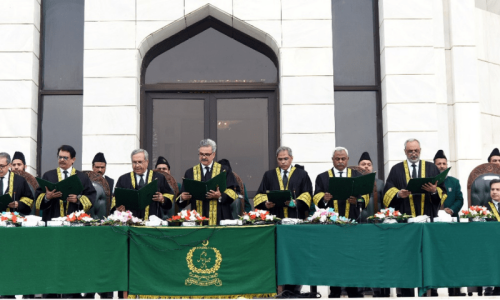Businesses are undergoing a transformation around the world. There have been advancements in technology that enable companies to sell more products in ways that were unheard of in the 1990s. With social media taking off to impact millions globally, there has been a growing realisation of the gap that exists between the haves and have-nots.
Terms such as corporate social responsibility, corporate citizenship and corporate sustainability speak of a transformative culture. It requires businesses to go beyond ethical and legal compliance and consider the triple bottom line — people, planet and profit. A clear business case exists for integrating the sustainable development strategy into organisational culture when future resource costs and risks relating to the reputation and compliance are considered.
The Cambridge Institute of Sustainable Leadership (CISL) in its research titled “Rewiring the Economy” has identified two approaches for businesses — business-as-usual and sustainable trajectory. Whilst the latter can “enable business to work on innovative, commercially relevant ways to address global trends,” the former trajectory may lose out.
A business model with clear linkages to human development indicators can result in sustainable value creation
While the traditional business models have created economic growth and wealth, they have not been able to address extreme poverty, inequality and the overall impact on the environment. In the early 2000s, these issues came to the fore as it became clear there was a need for governments, businesses and society to work together towards a common goal. Simultaneously, business ethics were prioritised and together these created a road map for the development of a global agenda: United Nations Sustainable Development Goals (UNSDGs).
In 2015, 193 nations adopted the UNSDGs, which present a blueprint for achieving a better and sustainable future for all. The goals were the outcome of a global collaborative process. Governments, businesses, non-governmental organisations and academia identified a framework to address major challenges such as poverty, inequality, climate, environmental degradation and peace and justice. The SDGs’ Agenda 2030 consists of 17 goals and their related targets. As the private sector is the mainstay of every economy, the agenda requires businesses to orientate their activities towards sustainable development.
In a recent workshop on transforming business culture by the Centre of Excellence in Responsible Business (CERB) by the Pakistan Business Council, corporate executive Khalid Awan spoke of UNSDGs in terms of businesses needing to look beyond consumers. Companies need to understand what issues are material — eradicating poverty, adopting ethical labour practices, ending child malnutrition, establishing gender equality at workplaces and/or enforcing accessible, quality education for all generations.
In a global survey conducted in 2017 by PwC, “37 per cent have selected priority SDGs and a further 25pc mentioned the goals in their reporting”. Globally, many of the forerunners in integrating sustainable development policies, such as Unilever and Tetra Pak, have undertaken different approaches. Unilever’s Sustainable Living Plan was developed in 2010, which was then mapped and linked to the SDGs and targets. Tetra Pak has developed a sustainable development strategy following a materiality assessment process. The indicators for measuring progress and reporting on the SDGs were matched to those of the Global Reporting Initiative. Their example highlights how the SDGs can be used for a systematic assessment of the companies’ sustainable development strategies.
The results of a recent survey by the CERB indicate companies in Pakistan are also thinking about the SDGs. As many as “45pc of companies have identified the SDGs into corporate strategies, but have yet to report on the SDGs, whilst 24pc of companies are reporting on the goals”.
While multinationals like Unilever, Tetra Pak and Nestle have adopted the SDGs as part of their global sustainable development strategies, many local companies have also jumped on the bandwagon. The 2018 Group Sustainability Report, which focuses on the Chinoy Group’s International Industries Ltd and International Steel Ltd, has mapped and reported on each activity in relation to the SDGs. Sindh Engro Coal Mining Company (SECMC) has in partnership with the Sindh government established the Thar Foundation.
What do businesses lose in terms of growth, innovation and partnerships if we fail to meet the SDGs? The answer lies in understanding the failings of the business-as-usual approach. This approach is essentially based on the assumption that only economic concerns, such as access to cheap resources and efficient processes, are important for creating shareholder value. This approach results in externalised costs of an increased impact on the environment and society. There is no accountability for non-financial impacts. In contrast, the SDGs reflect the need for a paradigm shift — a combined effort is needed to deal with human-induced climate change and unsustainable use of resources.
In this respect, development challenges can be thought of as sources of business risk and opportunity. Thar Foundation is reflective of the realisation that a business case exists for hiring and training people from local communities. The development of a business model with clear linkages to human development indicators is an example of how transformational strategies can result in sustainable value creation.
CERB’s survey findings show “86pc of companies have identified and communicated an explicit commitment to prioritised areas of sustainable development, but only 50pc had a process in place if the management failed to consider sustainable development issues and deliverables”. This shows that while necessary awareness and attitudes may start in the executive suite or in the CSR department, they need to permeate throughout the company to unleash business potential to drive sustainable development.
The writer is senior research associate at the Pakistan Business Council’s Centre of Excellence in Responsible Business
Published in Dawn, The Business and Finance Weekly, November 19th, 2018















































